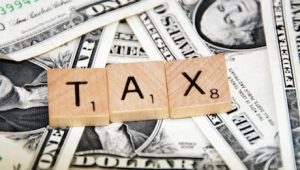By Christian Wade | The Center Square
New Hampshire lawmakers are moving to raise the minimum amount under which businesses are required to file returns for the state’s business profits tax.
A bipartisan proposal, which unanimously cleared the House Ways and Means Committee this week, would increase the threshold for paying the state’s business profits tax from $50,000 to $92,000 beginning on the July 1 start of the fiscal year.
The original bill called for raising the threshold to $75,000, but committee members decided to bump it even higher to account for inflation. They also added a provision indexing increases every two year to the inflation rate.

The push to raise the business profits tax threshold is one of several proposals aimed at easing business costs in a state that thrives on its reputation for keeping taxes low.
Ways and Means Committee Member Rep. Susan Almy, D-Lebanon, proposed raising the threshold and said it would help more businesses to avoid paying the tax while ensuring that the tax keeps up with inflation. She suggested that the loss of revenue “won’t come as a shock” to the state and it will “adapt” to the changes.
The bill’s primary sponsor, Senate Minority Leader Donna Soucy, D-Manchester, praised the committee for raising the threshold and said it will help small business owners by eliminating paperwork and lowering operating costs.
“New Hampshire’s economy is driven by small business owners and self-employed entrepreneurs,” she said in a statement. “SB 101 will relieve thousands of our small businesses of an unnecessary financial and administrative burden at a time when many of them are only beginning to financially recover from the COVID-19 pandemic.”
The measure, which has already passed the state Senate, now moves to the full House for consideration. A vote on the bill is expected next month.
Increasing the threshold to $92,000 will reduce revenues by $2.6 million a year – roughly $1 million more than the previous proposal, according to the state Department of Revenue Administration. The state agency said about 4,600 businesses that are currently subject to the tax would be impacted by the changes.
The push to raise the business profits tax threshold is one of several proposals aimed at easing business costs in a state that thrives on its reputation for keeping taxes low.
Gov. Chris Sununu has proposed cutting the state rooms and meals tax from 9% to 8.5 % – the lowest level in more than a decade – and reducing the business enterprise tax from 0.6% to 0.55% and raising the filing threshold to $250,000 to provide relief for businesses and help spur the state’s economic recovery.
The Republican governor also called for phasing out the state’s interest and dividends tax over the next five years, fully repealing it by 2026.
Those proposals are currently under consideration by the Legislature as part of the proposed two-year budget.
Democrats have complained that Sununu’s plans to cut business taxes would hurt the state’s economy and shift more of the burden to property owners.


